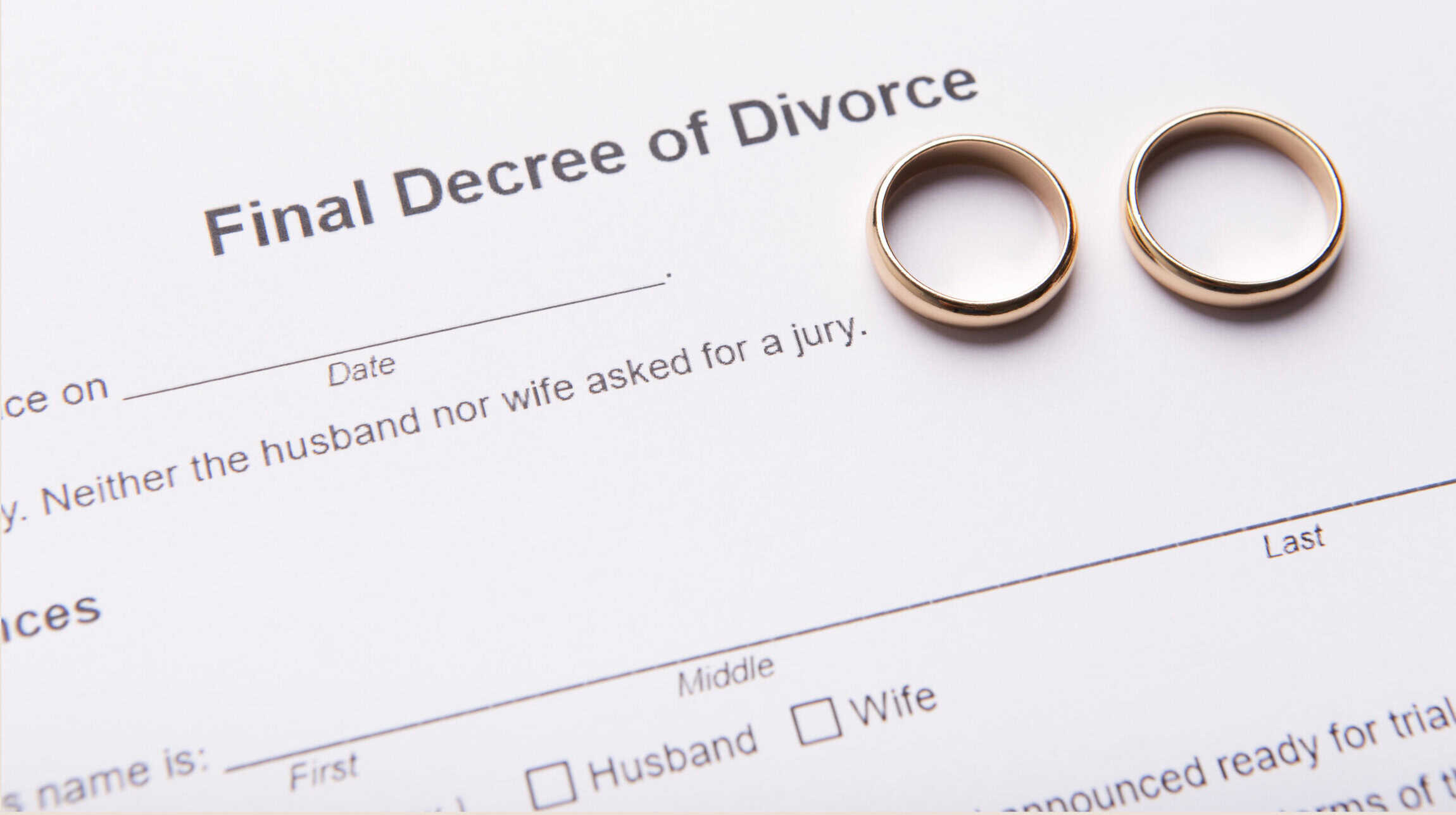Divorce brings both emotional and financial changes, and one of the most complex issues is often spousal support. Navigating this process in Virginia can feel overwhelming, but understanding the basics can help you approach your case with clarity and confidence.
Spousal support, often referred to as alimony, is designed to promote fairness when one spouse earns significantly more than the other. It ensures that both individuals can move forward without severe financial imbalance.
In Virginia, courts do not apply a one-size-fits-all formula. Instead, judges carefully evaluate the amount and duration of spousal support by weighing the evidence provided by the spouse seeking support and the party seeking support against the overall circumstances.
At Renfro & Renfro, we know these decisions shape your financial future. Our goal is to help you understand how spousal support is calculated in Virginia, what the laws allow, and the factors judges consider, so you can take informed steps with guidance you can trust.
What Is Spousal Support in Virginia?
Spousal support is a court-ordered payment from one spouse to the other after separation or divorce. Unlike child support, which is focused on the needs of minor children, spousal support exists to ensure neither spouse is left at a severe financial disadvantage. Virginia law uses the term “spousal support” more often than “alimony” or “maintenance,” but the concepts are interchangeable. The support and maintenance ordered can be temporary, rehabilitative, or permanent.
How Is Spousal Support Calculated in Virginia?
There is no single formula that applies to every case, but Virginia provides guidelines for calculating temporary spousal support (also called pendente lite spousal support) while a divorce is pending. Judges in the juvenile and domestic relations courts often apply these guidelines to determine a fair spousal support award until the case is finalized. When deciding a final spousal support determination, the court may exercise discretion, considering a variety of factors.
Key considerations include:
- Income and financial resources of both spouses
- Obligations, needs, and financial circumstances of each party
- Lifestyle and standard of living established during the marriage
- Earning capacity and future earning potential, including the job market
- Present and future earning prospects given education, training, and present employment opportunities
In short, Virginia courts consider not just current finances but also decisions regarding employment career paths, economic education, and parenting arrangements, and such earning capacity as demonstrated by either spouse.
Factors Judges Consider Under VA Alimony Laws
Virginia Code 20 107.1 outlines the circumstances and factors courts must weigh before making a spousal support determination:
- Duration of the marriage and the length of time one or both parties have been absent from the job market
- The standard of living established during the marriage, and the lifestyle of the parties during the marriage
- Contributions of each spouse (monetary and non-monetary), including childcare, homemaking, education, and parenting arrangements
- Age, physical and mental condition, and health of each spouse
- Marital property division and how it affects financial stability
- Retirement plans and other financial resources are available
- The extent to which one spouse contributed to the dissolution of the marriage
- Whether the recipient spouse needs time for appropriate education or training to seek employment
- Decisions regarding employment, career, economic education, and parenting arrangements are made by the parties
- Tax consequences of a potential support award
Judges receive evidence on each of these factors and weigh them as a whole, ensuring fairness and consistency under Virginia law.
Types of Spousal Support in Virginia
Spousal support can take different forms depending on the situation. Temporary spousal support, also known as pendente lite spousal support, is awarded while a divorce is pending. Rehabilitative alimony is short-term support designed to allow one spouse to gain appropriate education or training. Permanent spousal support provides ongoing assistance, often reserved for long-term marriages. A lump sum award involves a single payment instead of continuing obligations. Defined duration support is ordered for a set number of years.
The court may choose to award spousal support in one of these forms depending on the circumstances and factors presented.
How Long Does Spousal Support Last in Virginia?
The amount and duration of a spousal support award depend heavily on the duration of the marriage and the length of time the recipient spouse was absent from the job market. For example:
- Short-term marriages often result in shorter rehabilitative support.
- Long-term marriages may justify permanent spousal support.
- Support generally ends upon remarriage or cohabitation of the recipient spouse.
The court may also adjust or end a spousal support obligation if circumstances justify a change.
Can Spousal Support Be Modified or Terminated?
Yes. Under Virginia law, spousal support can be changed if there is a material change in circumstances. Common reasons include:
- Job loss or a substantial change in income
- Illness or disability of either party
- Remarriage or cohabitation of the recipient spouse
The party seeking support or the payor may petition the domestic relations district court or juvenile and domestic relations district court to request a modification. The court may consider present employment opportunities and relative economic circumstances in deciding whether to award support adjustments.
Tax Treatment of Spousal Support in Virginia
Since 2019, federal tax laws have changed how spousal support is treated. Payors can no longer deduct payments as taxable income relief, and recipients no longer declare payments as taxable income.
The tax consequences of any spousal support award must be carefully considered during negotiation or in a marital settlement agreement, and courts often account for these issues alongside the costs involved in litigation and settlement. agreement. Courts often account for these issues alongside the costs involved in litigation and settlement.
Common Myths About Spousal Support
Despite how often spousal support comes up in Virginia divorces, many misconceptions still circulate about who qualifies, how long it lasts, and whether it can ever change. Here’s a quick breakdown of some of the most common myths—and the facts behind them.
| Myth | Reality |
| Only women receive spousal support. | Either party may qualify, including a husband as the party seeking support. |
| Permanent spousal support is automatic. | The court may only award spousal support permanently in long-term marriages where the recipient spouse has limited ability to rejoin the job market. |
| Support never changes. | A material change in circumstances may lead to modifications or termination. |
Practical Tips If You’re Facing a Spousal Support Case
If you are involved in a spousal support case, it is important to prepare thoroughly. Gather detailed records of your financial resources, retirement plans, and all marital property, and document your contributions, including education and parenting arrangements made by the parties.
Consider your present and future earning abilities, such as other factors as present employment opportunities, and weigh the costs involved in litigation and negotiation.
Finally, obtain experienced legal counsel familiar with Virginia law and the way courts award support, as professional guidance can be essential to protecting your rights.
Protecting Your Financial Future
Spousal support can have lasting effects on both spouses’ financial well-being. Understanding how the amount of spousal support is determined, the spousal support amount and duration, and the role of VA alimony laws helps you make informed decisions. Whether you expect to pay or receive a spousal support award, planning for the marriage and its effect on your financial future is essential.
Renfro & Renfro is more than just your average law firm. We’re passionate about what we do because we know that it can make all the difference when you have a good lawyer. Our lawyers bring a blend of legal skill, practical guidance, and genuine compassion to every case. Known for their deep knowledge of Virginia family law, they provide clients with clear strategies, responsive communication, and steadfast advocacy, ensuring that each decision is made with both confidence and care.
Contact Renfro & Renfro to discuss your case and receive guidance on navigating spousal support laws with clarity and confidence.
Spousal Support FAQs
Q: How is spousal support calculated in Virginia?
A: The court may use guidelines for temporary spousal support but relies on discretion for permanent awards, considering circumstances and factors like income, health, and the duration of the marriage.
Q: How long does spousal support last?
A: The amount and duration depend on the duration of the marriage, the length of time one spouse has been absent from the job market, and the needs of the recipient spouse.
Q: Can a spouse waive alimony in a prenuptial agreement?
A: Yes. A valid marital settlement agreement may include a waiver of spousal support if signed knowingly by either party.
Q: What happens if spousal support isn’t paid?
A: The court may enforce a spousal support obligation through wage garnishment or contempt proceedings, ensuring the support award is honored.
Q: Is spousal support taxable in Virginia?
A: Spousal support is not deductible as taxable income for the payor and is not counted as taxable for the recipient spouse.






